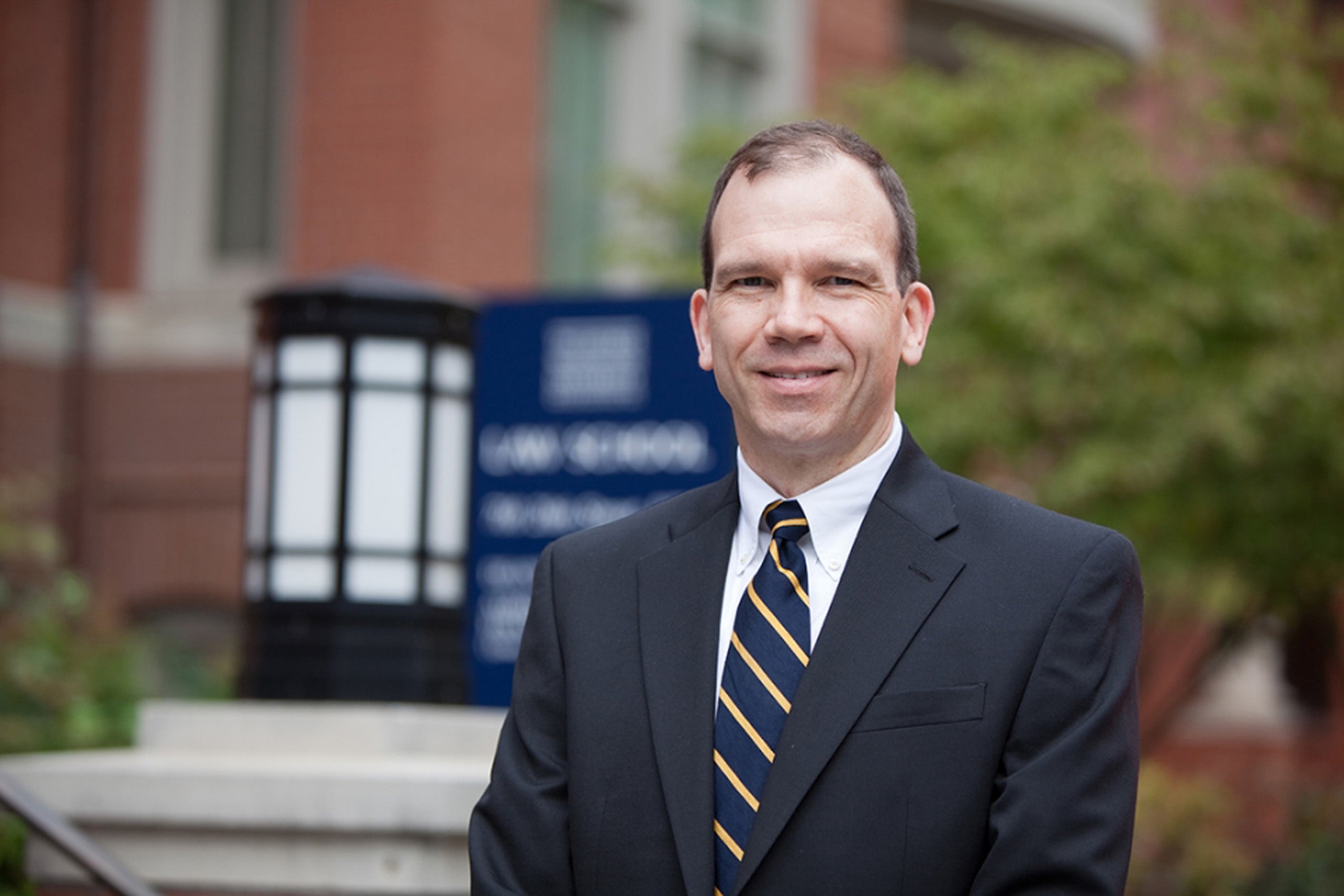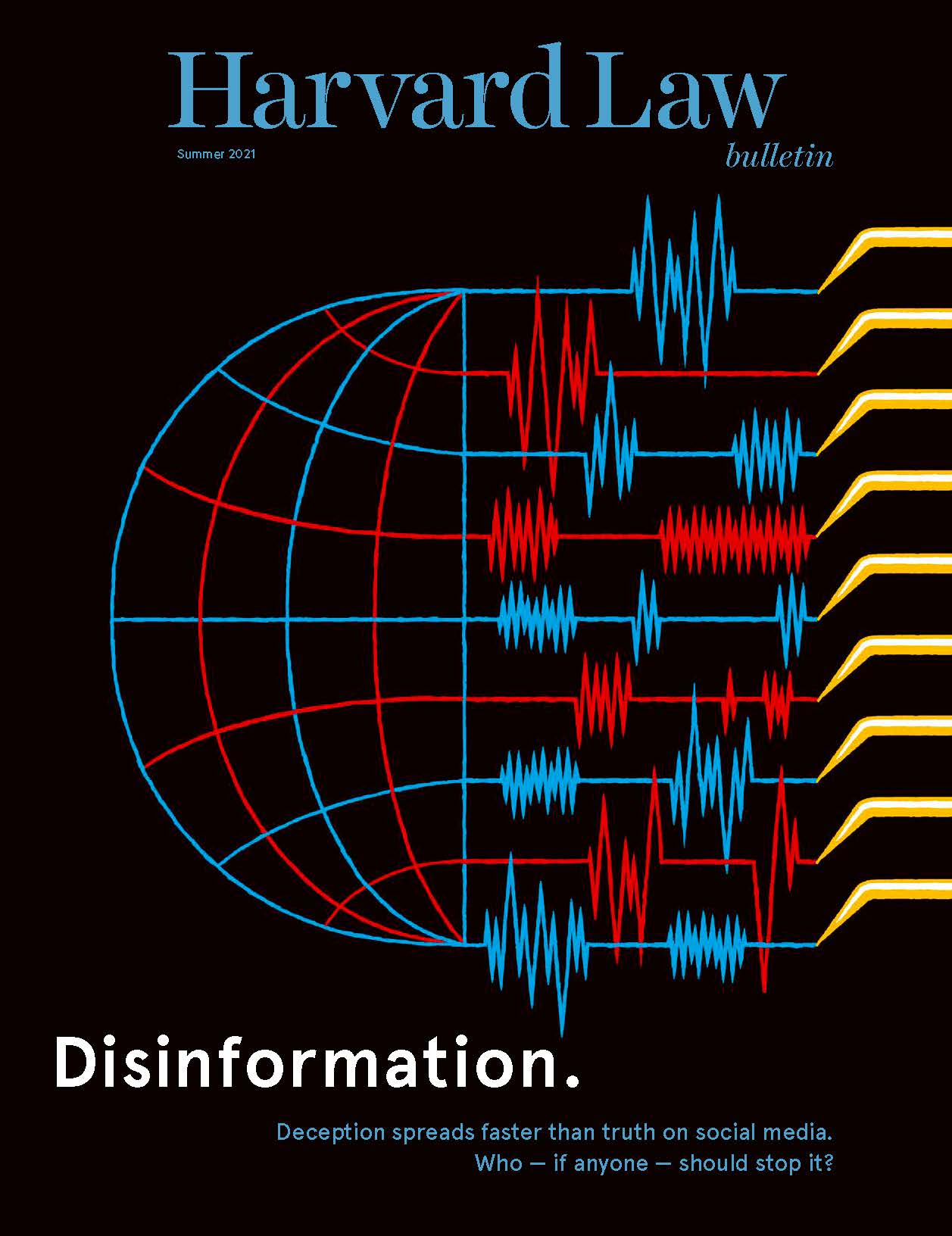A privilege to serve the nation in their company

Thank you for the fine story about my colleague Gregory Maggs ’88 in the Summer issue (“Salute to Justice”). Greg is a superb example of the best the Law School produces, having excelled as academic, as soldier, and as judge. It is also good to see coverage of the military justice system in the Law School’s publications. Of the 25 appointments made to our court [the U.S. Court of Appeals for the Armed Forces] in the 70 years of its existence, five have been alumni of the Law School — Robert E. Quinn ’18, Robinson O. Everett ’50, Andrew S. Effron ’75, Judge Maggs, and myself. In the wake of my retirement from the court last summer, I reflect on the enormous privilege of having served the nation with excellent colleagues like Judges Maggs and Effron, in beautiful surroundings, at the highest level of intellectual stimulation. It is hard to imagine a better combination.
Scott W. Stucky ’73
Potomac, Maryland
Be careful what you wish for
I have several comments on Lincoln Caplan’s article on whether the press can be held liable for publishing material obtained illegally (“The Pentagon Papers Case Today,” Summer issue).
True, as Caplan points out, under current law, the press cannot be punished for publishing information that comes into its possession even if that information was obtained illegally by the person who transferred it to the publisher. Yet, if publishers take partisan positions in general and let it be known that they stand prepared to publish such information, the line between merely receiving information passively and being an active participant in its theft could under certain circumstances become uncertain.
The First Amendment protects both speech generally and the press specifically. When anybody can disseminate information on social media (except to the extent that social media suppress certain information, which is a developing issue in its own right), there is no basis to distinguish between newspapers/television/radio and anything that anybody might put out on the internet. The number and percentage of the population whom the latter can reach far outstrip those whom a traditional publisher could reach at the time the Bill of Rights was ratified. And “the press” has no realistic claim that it and it alone puts out the truth, the whole truth, and nothing but the truth and therefore deserves special solicitude.
I expect that within the coming few years New York Times Co. v. Sullivan will be overturned or eviscerated, not so much because it was decided incorrectly in 1964 as because its test is no longer practical. A commercial publisher’s relevance and profitability now depend on reflecting the 24/7 news cycle to consumers, and in order to stay current with breaking events and to compete with other sources, it may feel pressure to publish quickly before it has had a chance to do a proper investigation into truth or falsity, especially when material appears to be consistent with whatever “narrative” it is trying to promote that appeals to its constituents. That behavior would often meet the definition of “actual malice” — reckless disregard of whether a statement is true or false — unless the Supreme Court were to redefine “reckless” to exclude ipso facto any action taken to scoop others, which would be intolerable both politically and doctrinally.
Finally, people should be careful about what they wish for. Anyone who wants to see Citizens United overturned, either by a constitutional amendment or by complaisant justices’ winking and nodding, should understand that if corporations are not allowed to express political views, that includes corporations that publish newspapers and broadcasters. There is no basis to distinguish a corporation that claims to be in the business of disseminating information and opinions from one that claims to be doing other things but also disseminating information or propounding its political viewpoints.
Robert Kantowitz ’79
Lawrence, New York
Today’s quackery may become tomorrow’s orthodoxy

This article (“Oh, What a Tangled Web We Weave — Deception spreads faster than truth on “social media,” Summer issue) is certainly timely, comprehensive, and provocative, thereby serving the important purpose of prompting reasoned discussion of topics which are critical to the nature of our society. However, it is based upon several questionable, if not faulty, premises.
First, it refers to “disinformation” being problematic for society but does not clearly define the term. This seems to be a common fallacy in this context; the day I read this article in the Bulletin, I came upon an article on the NPR website discussing the views of U.S. Surgeon General Murthy that disinformation is the major threat we face in the fight against COVID-19. It, too, failed to define the term, suggesting that it referred to information inconsistent with his favored approach.
Second and closely related to the first point above is the fact that in many fields, there is not and cannot be a static view of “high-quality information” in the words of Mr. Haidar appearing in your article. We have seen in recent years in many fields how today’s quackery becomes tomorrow’s orthodoxy as ideas are tested in what you believe to be the disfavored marketplace of ideas. Perhaps such a marketplace should not be disfavored?
Third, even assuming arguendo that a static view of information is in order, your article expressly advocates for some sort of board or tribunal to vet and categorize information and take steps to exclude from public (or all?) discourse that which is found wanting. Not being possessed of supernatural powers, I cannot imagine how any individual or group is intellectually or temporally capable of performing such a function in multiple fields. Perhaps good, old-fashioned dialogue is at least a more efficient approach.
The final express premise with which I take issue is that the internet has made more urgent the need for the oversight which you discuss. While the internet certainly increases the velocity of information, it did not introduce the concept of people communicating with each other, whether physically in a public square, over the telephone, through print media, or otherwise. Our First Amendment has withstood an increase in information velocity occasioned by new technologies and population growth and served us well, absent the harms which you posit. It should not be taken as given that increased information velocity is per se dangerous.
Your article appears to be a call for drastic deviations from our traditional First Amendment regime. Applying the customary approach of the Supreme Court in such situations, namely strict scrutiny, tells me that the case has not been made. On balance, whether we are dealing with wars, a pandemic, economic disruption, or other things, I’ll take unfettered debate as the best way of getting to the “right” public policy answer.
Martin B. Robins ’80
Barrington Hills, Illinois